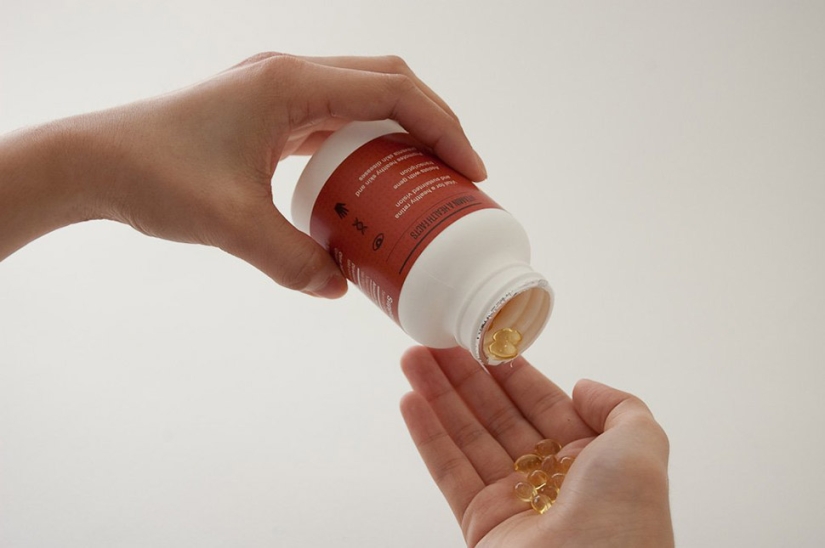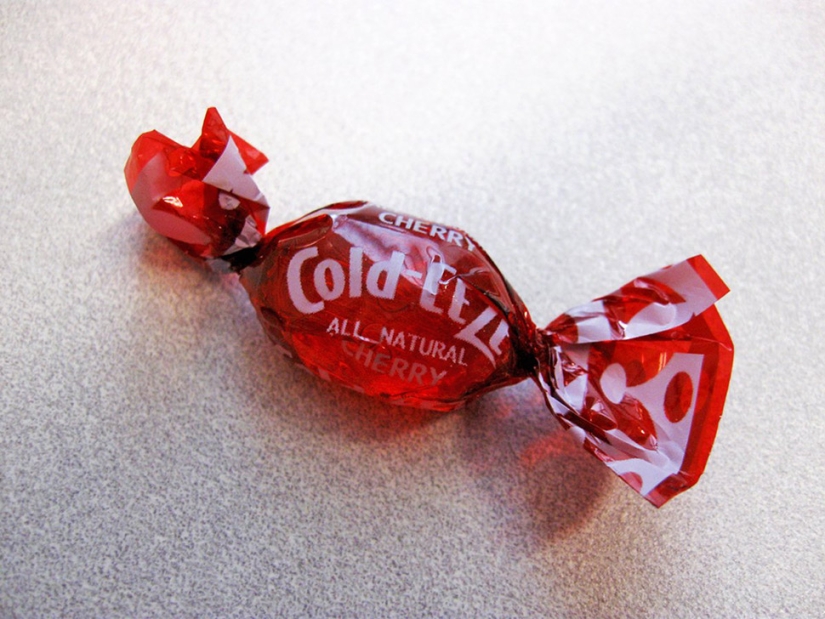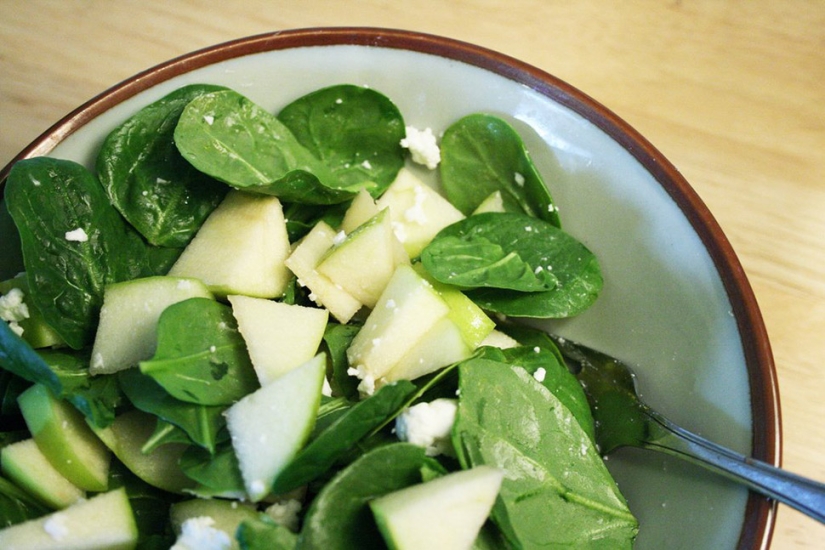Vitamin Guide: What to drink and what to throw away
Categories: Health and Medicine | Life hacks
By Pictolic https://pictolic.com/article/vitamin-guide-what-to-drink-and-what-to-throw-away1.htmlThis is a very simple advice: eat vegetables, exercise and, of course, take vitamins. Or don't take it. Decades of research have not provided substantial evidence that vitamins and supplements bring any tangible benefits. Moreover, recent studies tend to the opposite opinion, since it has been revealed that some vitamins can be harmful. Certain types of vitamins are correlated with an increase in the likelihood of developing certain types of cancer, and others with an increase in the risk of kidney stones.
Which vitamins are still worth taking, and which are not? The latest research claims the following:
(Total of 9 photos)
 Source: Business Insider
Source: Business Insider

Multivitamins: no; everything you need can be obtained through a balanced diet
For decades, it has been assumed that taking multivitamins plays a crucial role in maintaining health. Vitamin C — to "support the immune system", vitamin A — to protect vision, B vitamins — for tone. All this is already contained in the food you eat. Moreover, according to research, an overabundance of these vitamins can cause harm. In 2011, a study was conducted in which about 39 thousand women over the age of 25 participated. It was found that among those who took multivitamins for a long time, the risk of mortality was significantly higher than among those who did not take them.

Vitamin D: Yes; it keeps bones strong and is hard to get with food
Vitamin D is not found in most common foods, but it is a critical element that helps the body absorb calcium, due to which bones retain hardness. Sunlight stimulates the production of vitamin D in the body, but getting enough sunlight in winter is problematic. Several recent studies have shown that people who take vitamin D every day, on average, live longer than those who do not take it.

Antioxidants: no; their overabundance is considered the cause of the development of certain types of cancer, besides, you can eat berries instead
Vitamins A, C and E are antioxidants found in many fruits, berries and vegetables, and they are credited with the ability to protect the body from cancer. However, studies show that when overdosed, antioxidants can cause harm. An extensive long-term study among male smokers found that those who took vitamin A were more likely to develop lung cancer than those who did not. A review of testing several different types of antioxidant supplements, published in 2007, states: "Taking beta-carotene, vitamin A and vitamin E can increase mortality."

Vitamin C: no; it is unlikely to help with colds, and you can eat citrus fruits instead
The fever about vitamin C, which began with the hypothesis of chemist Linus Pauling, put forward in the 1970s, is just a fashion. Studies have shown one after another that vitamin C either has very little or no effect at all on the prevention of colds. In addition, giant doses — from 2 thousand milligrams or more — can increase the risk of kidney stones. Therefore, it is better to get the necessary amount of vitamin C with food, for example with strawberries.

Vitamin B3: No; it is found in salmon, tuna and beetroot
For many years, vitamin B3 has been advertised as a cure for all diseases, including Alzheimer's disease and heart failure. However, recent studies have put an end to the widespread recommendations of this substance. In 2014, a large-scale study was conducted in which 25 thousand people with heart failure participated. It showed that long-term intake of vitamin B3 in order to increase the level of "good" cholesterol in the blood did not reduce the number of heart attacks, strokes and deaths. Moreover, study participants who took the drug were more susceptible to infections, liver problems and internal bleeding than those who took a placebo.

Probiotics: no; science is not yet developed enough for them to have any noticeable benefit, it's better to eat yogurt
Probiotics are expensive dietary supplements whose price can be more than one dollar per tablet. But these same substances can be obtained naturally by eating yogurt or other fermented foods. In 2012, the market for such additives was estimated at $23.1 billion. Their essence is simple: to support the trillions of bacteria living in the intestine, which, as we know, play a crucial role in the health of the body. But it turned out to be much more difficult to put this idea into practice. While the effect of probiotics is unclear. Sometimes they help, sometimes they don't. Therefore, it is better to lean on fermented dairy products, and not on expensive pills with questionable effectiveness.

Zinc: yes; it is one of the few substances that help speed up recovery from a cold
Unlike vitamin C, which, according to research, does not prevent or treat the common cold in any way, zinc is worth taking. This mineral prevents the reproduction of rhinoviruses that cause colds. In a 2011 study involving people who had recently fallen ill with a cold, scientists observed those who started taking zinc and compared them with those who took a placebo. The participants of the experiment who took zinc recovered faster, and they had less severe complications.

Vitamin E: no; its overabundance increases the risk of developing certain types of cancer, besides it is contained in sufficient quantities in spinach
The antioxidant vitamin E has become popular due to its supposed ability to protect against cancer. However, a large study conducted in 2011 among 36 thousand men found that the risk of developing prostate cancer was actually higher among those who took vitamin E than among those who took a placebo. A 2005 study indicates that high doses of vitamin E are associated with an increased risk of death. If you lack vitamin E, make yourself a spinach salad, and throw away the pills.

Folic acid: yes; take it during pregnancy or if you want to get pregnant
Folic acid is a B vitamin that the body uses to create new cells. The US National Institutes of Health recommends that pregnant or pregnant women consume 400 micrograms of folic acid per day, because their body needs more of this element during pregnancy. In addition, several large studies have found that the use of folic acid before and during pregnancy reduces the risk of neural tube defects, as well as severe and life-threatening birth defects of the brain, spinal cord and spine in a child.
Keywords: Vitamin deficiency | Useless | Vitamins | Benefits
Post News ArticleRecent articles

It's high time to admit that this whole hipster idea has gone too far. The concept has become so popular that even restaurants have ...

There is a perception that people only use 10% of their brain potential. But the heroes of our review, apparently, found a way to ...
Related articles

An old tradition to eat alcohol, kebabs, sausages and other meat products obviously there for a reason. Our ancestors, having a ...

It's still autumn on the calendar, and it's almost winter outside the window. And, most unpleasant of all, a pandemic. The main ...

It's time to shake the faith of vegans in the unfortunate and cute little animals that are mercilessly killed by bloodthirsty meat ...

New Year's is a time to surprise and delight loved ones not only with gifts but also with a unique presentation of the holiday ...